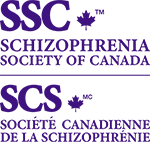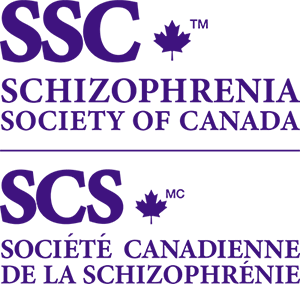The Story of The Schizophrenia Society of Canada
Build a Canada where people living with early psychosis and schizophrenia achieve their potential.
The Schizophrenia Society of Canada (SSC) was started as a non-profit, charitable organization in Toronto in 1979 by Bill Jefferies and his wife. As parents of a son with schizophrenia, they were quite aware of the stigma, prejudice, and discrimination associated with schizophrenia, one of the world’s most devastating mental illnesses. SSC was born out of a strong conviction that the status quo is insufficient for those experiencing early psychosis and schizophrenia, placing advocacy at the heart of the organization. Their lived experience as family members fueled their passion and vision that more could be done, not only for those living with schizophrenia, but also for families. Within a few years, there were provincial schizophrenia societies across Canada.
SSC is committed to transforming how people think: we seek to be a visionary in advocating for a transformed mental health system based upon the recovery philosophy. Significant advances in our understanding of mental illness and treatment modalities, along with early intervention and access to person-centred and recovery-focused mental health services have demonstrated that recovery and social inclusion is possible.
Tailored mental health services and supports can help those affected to live beyond the limitations of mental illness with purpose, hope, meaning, and significance. This requires the support of an entire community, both for those living with mental illness, and those who are otherwise affected. Mental health services must address the biomedical, psychosocial, psychological, and environmental issues individuals face, and be designed in response to the lived experiences of those affected. The SSC values peer support as an invaluable tool in working towards recovery, and looks to support the whole person.
We also believe that medical treatment is a key tool in helping people to reach their potential as a compliment to community support. Quality of life can be greatly improved with robust medical care, which is why the SSC is dedicated to supporting innovative research and improving access to medical treatment.
Today, we know that people living with a mental illness can achieve better mental health, their full potential, and in some cases, recovery. Our work continues to focus on supporting those affected by early psychosis and schizophrenia through research, education, and advocacy efforts, with the goal of helping people to reach their full potential.
Our Values
The Schizophrenia Society of Canada’s mission, goals, and objectives are informed by the following core values:
- Schizophrenia and early psychosis are medical illnesses that, like other medical illnesses, have variable expression/effects on symptoms, function and response to treatments.
- Schizophrenia and early psychosis are caused by a number of different factors; from multiple genetic or environmental factors or from a combination of both.
- The SSC fully supports the important role of research in all areas related to schizophrenia and early psychosis (biological, psychological, spiritual, and social determinants of health)
- Persons with schizophrenia and early psychosis are entitled to efficient multi-disciplinary and integrated evidence-informed treatment and community support services.
- Persons at the early phases of their illness are entitled to real secondary prevention (early intervention and treatment) through specialized first episode early psychosis clinics and their collaborators.
- Persons with schizophrenia and early psychosis are to be included as full citizens in accessing education, employment, housing, medical services, recreation and social supports.
- Whenever possible families are essential partners in the care and the treatment and recovery plans of persons with schizophrenia and early psychosis, and deserve respect and support
- Persons with schizophrenia and early psychosis must be included in their treatment planning, care and recovery plans.
- Persons with schizophrenia and early psychosis and their families are not to be blamed for this illness.
- The SSC values collaboration at all levels to ensure that caring, compassion, hope, and recovery remain at the heart of our movement.


